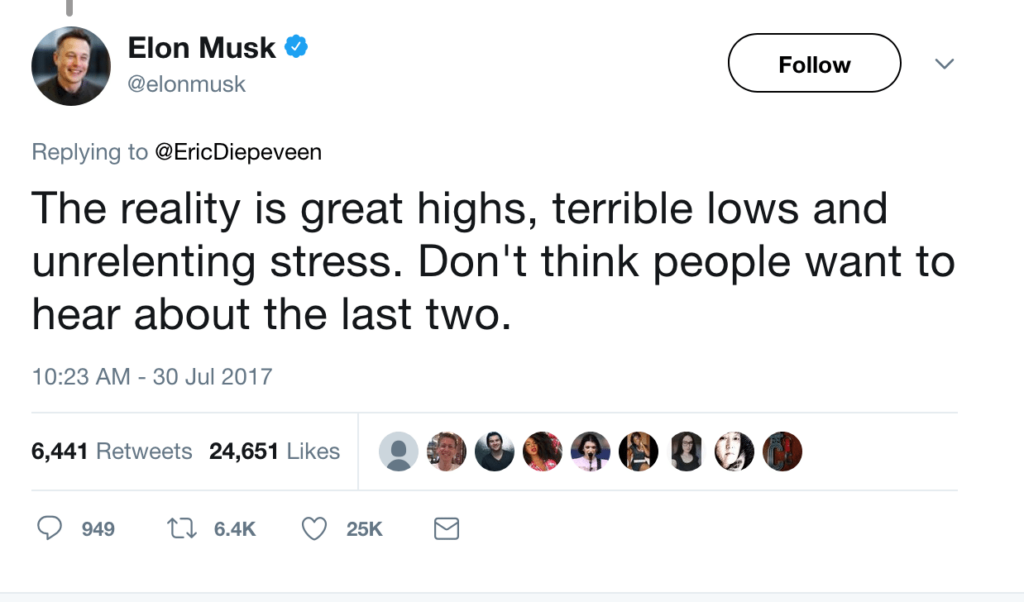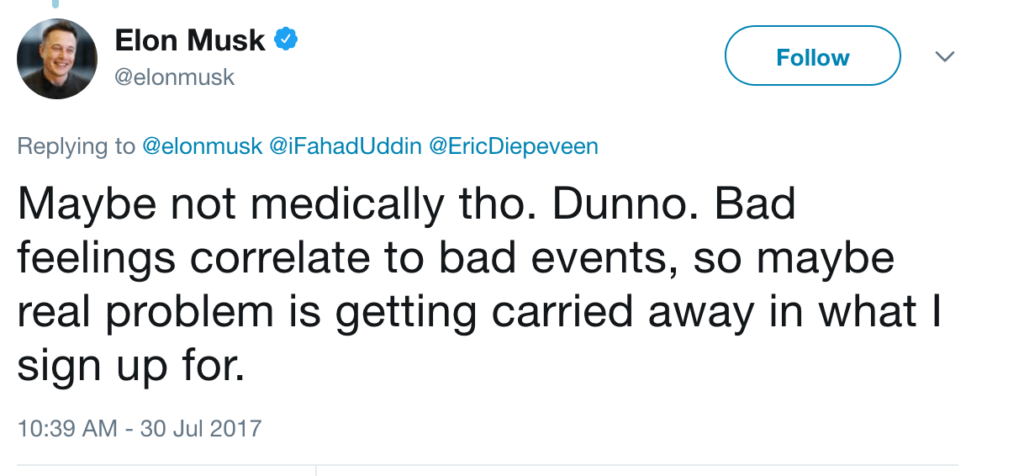By many external measures Elon Musk, the wildly successful CEO and founder of Tesla and SpaceX, should be happy, but opening up recently about his experience with depression reveals that no one is immune to mental illness.
In a conversation on Twitter, Musk spoke about his “great highs, terrible lows, and unrelenting stress.” 
While doctor’s note that a diagnosis can only be made by a psychiatrist, Musk has questioned whether he may have bipolar disorder. 
Whatever afflicts Musk, his openness sheds much-needed light on mental health concerns that are often kept in the shadows, and that disclosure is timely. Depression doesn’t discriminate, and Musk’s willingness to be so open also helps to destigmatize an illness which impacts so many people worldwide.

Organizations such as Bring Change to Mind with educational programs and social media campaigns like #strongerthanstigma, are working hard to end the fear around talking about mental illness, inform people about them, and open up dialogue. The attention could help people better understand depression and what distinguishes the clinical diagnosis from situational feelings of sadness, as well as what differentiates bipolar disorder from major depressive disorder. (You can find out more about bipolar disorder here, and major depressive disorder here.)
While advocacy groups and others are trying to educate and end the stigma, scientists are doing their best to better understand the causes and potential treatments for these illnesses.
In 2016, in what was then the largest study of its kind focused on major depressive disorder, researchers from Pfizer, Massachusetts General Hospital and 23andMe identified new genetic variants associated with depression. Earlier this year 23andMe launched a first-of-its kind study on Major Depressive and Bipolar Disorders in collaboration with The Milken Institute and Lundbeck. Reflecting perhaps the broad interest and need for this kind of research, we were able to recruit 25,000 people for this study in record time.
More than 16 million Americans are affected by depression each year, and nearly 6 million Americans live with bipolar disorder, according to statistic from the National Institutes of Health. And these conditions don’t discriminate hitting young and old, wealthy and poor alike.
A 2015 study found that 30 percent of entrepreneurs like Musk experience depression, so high achievement doesn’t necessarily keep you from getting stuck in the doldrums. Abraham Lincoln or Winston Churchill, for example, both famously wrote about suffering from depression.
According to the latest estimates from the WHO, more than 300 million people are now living with depression worldwide, an increase of more than 18 percent between 2005 and 2015. A lack support for people with mental illness, along with a fear of stigma, prevents many from accessing the treatment they need.
The point is that there are many people impacted by depression and that, is in part, one of the reasons 23andMe is so committed to studying it. That interest extends beyond just 23andMe, to the now thousands of individuals who have joined our study.




